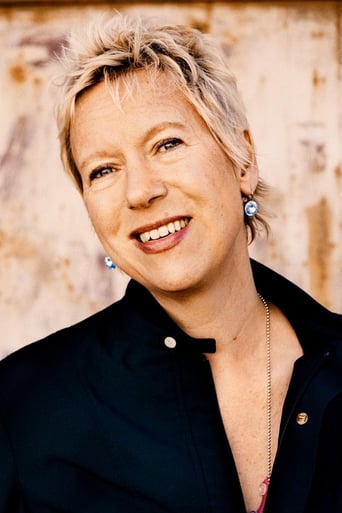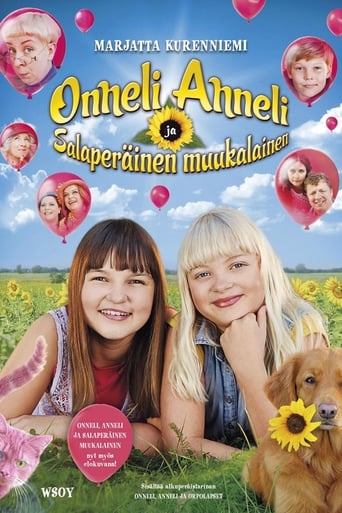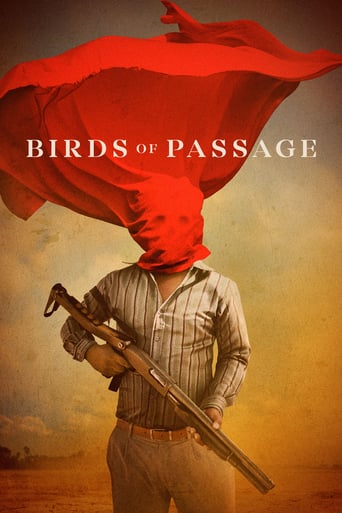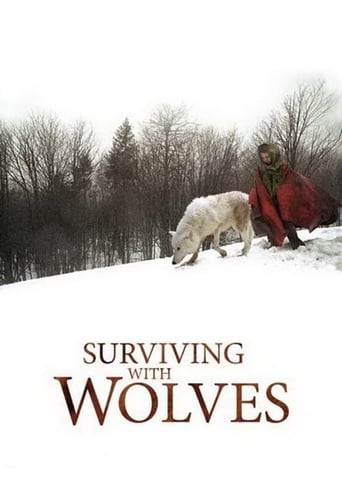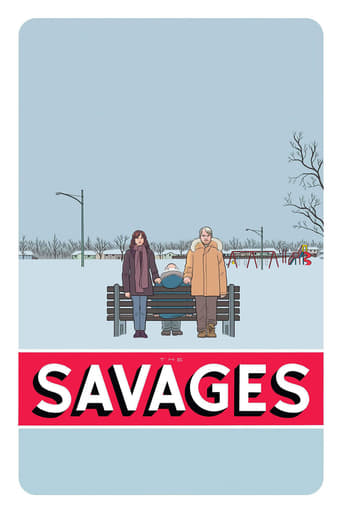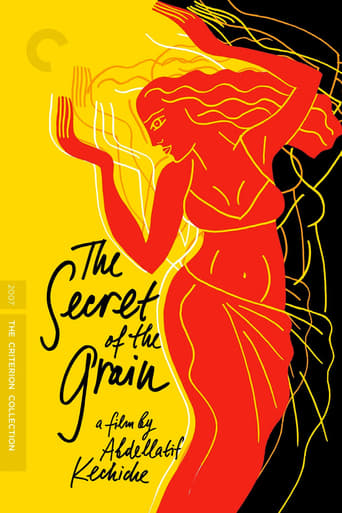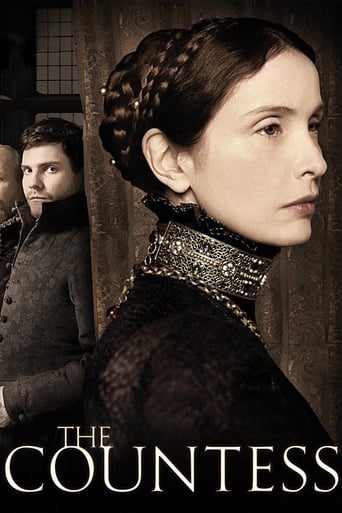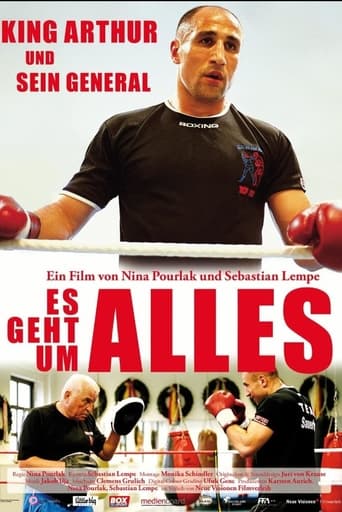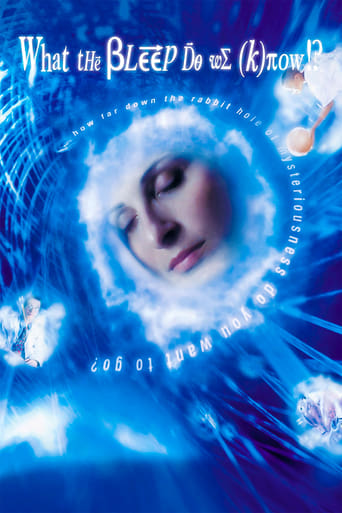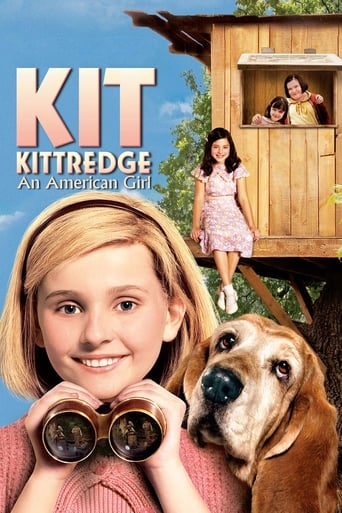

How to Cook Your Life (2007)
A Zen priest in San Francisco and cookbook author use Zen Buddhism and cooking to relate to everyday life.
Watch Trailer
Cast
Similar titles
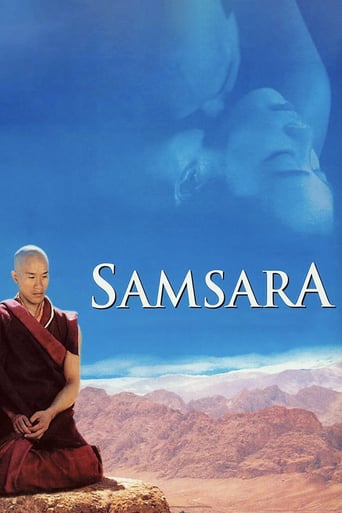
Reviews
Memorable, crazy movie
Just what I expected
if their story seems completely bonkers, almost like a feverish work of fiction, you ain't heard nothing yet.
It's the kind of movie you'll want to see a second time with someone who hasn't seen it yet, to remember what it was like to watch it for the first time.
Famed cookbook author Edward Espe Brown takes the old adage "You are what you eat" to a whole new level. For this master chef/Zen priest believes you must actually become "one" with your food (and, as it turns out, with your utensils as well) if you are to ever attain true wholeness of body and spirit in this life. Brown has been conducting courses on how to combine the art of meditation with the art of cooking for decades now, and the documentary "How to Cook Your Life" by German filmmaker Doris Dorrie (who went on to make the superb Zen-flavored drama "Cherry Blossoms" a year later) enrolls us in one of those courses - though we don't get any actual credit for the class and, what's worse, we don't get to sample any of the food.Food for Brown has become a way of life - a spiritual and religious experience, as it were, a means of nurturing the soul as well as the body, of becoming one with nature. And the more organic and less processed that food is the better.Brown spends much of the time in the course dispensing words of wisdom on how to live life in greater harmony with the world around us, with food and cooking as the primary means of achieving that goal (let it be noted that the seminar takes place in a beautiful bucolic center in rural California). And if the philosophizing gets to be a bit too much for you after awhile - as it did for me - and Brown seems more like a self-aggrandizing drama queen than an enlightened master at times (the crying over a teapot - and not even a broken one at that - is a bit much), you can at least savor all the tasty morsels that have been lovingly arrayed for our delectation.Though, come to think of it, with his endless chatter and ceaseless pontificating, Brown puts us in mind of yet another popular expression: "How about a little less gab and a little more grub?"
Metaphors about food and its connection to life are common in our society; for example, "life is just a bowl of cherries", or "life is like a box of chocolates. You never know what you're going to get". Yet most of us take food for granted, treating it as little more than a necessary means of survival, pausing only long enough to open a package or stop for fast food on the way home from work. The connection between our life and what we eat is the main theme of German director Dorris Dorrie's documentary How to Cook Your Life featuring Zen practitioner and acclaimed chef Edward Espe Brown. Brown has been a practicing Buddhist for over forty years and is the author of several books including "The Tassajara Bread Book", a main reference book for aspiring bread bakers. Winner of the Audience Award at Sundance, Dorrie's film follows Brown to several Buddhist centers including Scheibbs in Austria, the Tassajara Zen Mountain Center, and the Zen Center in San Francisco as he promotes his ideas about our putting food into a larger context in our life. "When you're cooking you're not just cooking", he says, "not just working on food, you are also working on yourself, on other people." Brown was ordained as a Zen priest in 1971 by Suzuki Roshi and has held cooking classes in Buddhist centers throughout the world, teaching mindful awareness of food in our life. Roshi, author of the popular "Zen Mind, Beginner's Mind", is shown in original archive footage, "When you wash the rice", he once told Brown, "wash the rice, when you cut the carrots, cut the carrots, when you stir the soup, stir the soup." In other words, when you are involved with a task, be involved one hundred percent, stay in present time and silence the little voice in the back of your head.Dorrie divides the film into sections: free your hands, fiasco, cutting through the confusion, anger, affluence, no preferences-no aversions, incomparable, imperfection and blemishes. She also visits an organic farm and a cookware store and shows how a woman creates her own meals by scavenging fruit from trees and leftovers from grocery stores. Brown aches for a return to a simpler life with more personal involvement with food. His emphasis is on the joy of using our hands in cooking and has nothing good to say about the packaged and processed foods that permeate our society. He talks with nostalgia about his memories of when his father baked his own bread. "Why are we eating like this? What went wrong? We're eating a puffy kind of chemically, not very tasty, papery-cardboard bread. We don't do things anymore because supposedly machines can do it better."Brown has a strong point of view and has the ability to laugh at himself with a little chuckle like the Dalai Lama, though at times his personality can be somewhat irritating and I would have enjoyed hearing from more of the participants at the Centers. Dorrie does not set him up as a saint, however, showing his occasional lapses into anger and frustration and his tears when describing a dented teakettle and comparing it to the worn vessel of our own bodies. The message, however, comes through clearly. Brown says, "When we give away our capacity to do things with our hands, with our bodies, to use our hands to knead the bread, to make things, to touch things, to smell things, how are we going to feel alive?" I remembered this the next day when I made pancakes from scratch for the first time in many years. Not bad, either.
A grown man cries over tea pots. That's one of the few highlights in this rather bland movie. I was interested in more of the political aspects of the film like the woman who hadn't bought groceries in 2 years and liberated fruit off the property of ...(read more) Bush voters. Very nice.Instead of having a nut-job like Chef Ramsey hosting a show like "Hell's Kitchen", FOX should get the Zen chef. He's just as insane but a much more likable way. Unfortunately this wasn't the right medium for his insanity and we feel more embarrassed for him on camera than entertained. I also wasn't left with much more of a knowledge of zen which I was truly hoping for here.
A quirky Zen leader, a couple followers who are way to interested in what he's saying and a load of other subtly absurd details make this film hilarious if you don't want to take it serious. You can enjoy this as a primer to Buddhism but you can also laugh at it as a showcase of some nutty Americans who might be slightly mistranslating the deep history of a foreign religion. Some scenes are so out of place like all of a sudden the cameras follow people scavenging for food and talking about the connection between American wastefulness and the Iraq war...you'll find half your brain going, "Hmmmmm, interesting" and the other half going "WTF are their talking about?"
